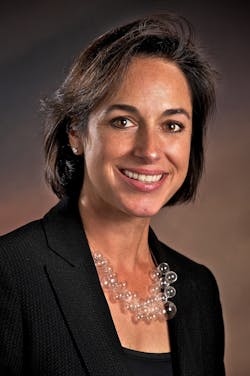How can someone appropriately appreciate a year in which so much happened? As I look back on the last 12 months, this is the problem I've been having.
Where do I begin? In 2014, I married the love of my life and moved into a new house. If that weren't enough, my year was full of weddings, deaths, births, and celebrations. I traveled, partied, got sick, got better, and got older. I grew personally and professionally. I barely had a weekend to breath.
Some years pass by without much to do or much to say. Some do not. This one did not.
Milestone years, like the one I just had, become engrained in your memory. They become the signposts of life, and everything else is recalled in approximation to those years.
As I wrote last week, 2014 was similarly unforgettable for health IT enthusiasts. It had everything you could ask for: drama, tension, optimism, pessimism. Let's review, shall we?
Late March/Early April: Mere weeks after Centers for Medicare and Medicaid Services (CMS) Administrator Marilyn Tavenner, R.N. promises "no more delays," ICD-10 is dramatically pushed back an additional year as a provision included in the Sustainable Growth Rate (SGR) temporary"Doc-Fix" bill. For some, the news is a relief. For others, it's frustrating.
May: John Halamka, M.D. the CIO at Beth Israel Deaconess Medical Center and a respected industry voice, makes a dramatic prediction at the Health IT Summit in Boston on meaningful use, saying only 20 percent of hospital-based patient care organizations will successfully attest to Stage 2. His pessimism echoes the sentiments of many in the industry on the future of meaningful use.
August: Community Health Systems, a Franklin, Tenn.-based nationwide operator of hospitals, is hacked and 4.5 million patients have their information exposed. The incident brings to light the health industry's failures in data privacy.
August: Siemens sells its well-travelled health IT division to the Kansas City-based Cerner for a cool $1.3 billion. The merger combines two of the biggest electronic health record (EHR) vendors and establishes Cerner as the largest revenue-earner in the industry. It also establishes Cerner as a clear powerhouse rival to the dominant Verona, Wisc.-based Epic Systems.
Late August/Early September: CMS offers meaningful use flexibility, allowing eligible professionals and hospitals to attest in 2014 using 2011 certified software. However, critics say it's not enough as it doesn't address the 365-day reporting period in fiscal year 2015. Health IT and medical practitioner advocacy groups later promote a bill that would allow for 90-day reporting in 2015.
June/September: Apple releases its personal health offerings, and later, announces several partnership with big-name provider organizations and health IT vendors. In 2014, consumer tech giants like Apple, Google, and Samsung made their stamp on the growing personal wearable health device market.
September: Three more participants drop out of CMS' Pioneer Accountable Care Organization (ACO) program, leaving 19 total out of the original 32. The program came under incredible scrutiny in 2014 as at least one ex-participant said it was financially "detrimental."
September/October: Karen DeSalvo, M.D. the National Coordinator for Health IT, is tapped by Health and Human Secretary (HHS) Secretary Sylvia Mathews Burwell to serve as Acting Assistant Secretary of Health and lead the Obama administration's Ebola support team. This comes less than a year from her appointment to the top health IT position in the country. Confusion over her role with the Office of the National Coordinator for Health IT (ONC) leads the agency to clarify that she will work both jobs. To further confuse this situation, several high-level officials earlier in the year departed the ONC for the private sector.
October: Speaking of Ebola, electronic health records (EHRs) are thrown into the heat
of the mess when executives at Texas Health Resources, the corporate parent of Texas Health Presbyterian Hospital, initially lay the blame on their organization's EHR for a purported documentation failure related to the premature release of a patient with Ebola. The health system's senior executives cite a flaw in the nursing and workflow portion of the EHR, but later retract the assertion.
December: CMS releases its proposed changes to ACO and other Shared Savings models, including the release of a new double-sided risk track. The rules include more incentives for ACOs to take on more risk, but also more fallback if they fail to meet quality measures.
These were just a few of the major events that we saw in 2014. You'll have to forgive me for missing any. It's rare that the buzz gets that loud and we, as healthcare journalists, get to cover that many exciting happenings.
So where do we go from here? I'll let others look ahead. I'm still looking back and appreciating the year that was. See you in 2015!


